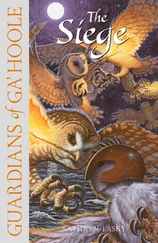“The subs are deep,” Pinky says. “We’ll have no contact until they surface.”
“Which is when?”
“Six days.”
“So,” Yigal says. “Six days to win a war.”
The chief of staff allows himself a wry smile. “It’s not like we haven’t done it before.”
THE SAME DAY, THE president of the United States, having arrived in a convoy of presidential 707s—two are decoys carrying sufficient Marine firepower to secure a square mile on the ground—is seated in one of the Saudi king’s twelve royal palaces on one of two facing gold armchairs. The armchairs are not painted gold. They are gold. As to the twelve palaces, these function much the same as the presidential air convoy. Should yet another attempt be made to separate the royal head from the royal body, the attackers can never be sure where to strike.
For his accommodation with America, ISIS and Al Qaeda have made the Saudi king Islamist target number one. The king may be Islamism’s chief benefactor and a supporter of jihad-crazed Muslims from Nigeria to Pakistan, but the sin of his longstanding American alliance overrides all: it is unforgiveable. Consequently, the monarch never sleeps in the same palace longer than one night. Moreover, four royal lookalikes are shifted from palace to palace like roving players, each with his own retinue of advisors, all of them imposters, and wives, also imposters, though these are regularly made available to the replacement monarchs. Even the royal family is not privy to the king’s location. Wisely—internecine bloodletting is an Arabian tradition predating Mohammed.
Seated behind the two rulers are their respective retinues, one of them in a burqa. A feminist to the core—though considering the administration she works for, never outspoken about it—Flo Spier finds the getup oddly suitable to her position as the president’s chief political operative. Hidden in plain sight, able to watch, listen, and learn but not required to speak unless absolutely necessary, she is able to parse the political landscape with a certain curtained-off detachment, a Wizardess of Oz in Islamic drag.
Though the king’s command of English is more than adequate, two translators hover nearby, the one to correct the other, a common practice when the royal head inclines to the West. Like competing viziers, each translator is quick to point out any error, especially of nuance, coming from the mouth of his rival. But when the king speaks for himself in English, neither risks challenging so much as a wayward gerund.
“Please, my dear honored guest,” the ruler says with a kind of dainty generosity, quashing the English syllables like so many delicate Muscat grapes. For emphasis he raises his right hand, palm out. “Even before you speak, your dignity must know that every wish of your heart shall be honored.”
“Well, your highness,” the president rejoins. “That’s mighty white of you. The American people appreciate your goodwill.”
“Then it shall be according to your desire. We shall restart production of the oil.” The king is a master of timing. “There exists, however, a small related matter.”
“King, one hand washes the other.”
The monarch sighs. He has seen The Godfather, Part II eleven times. He speaks slowly, Marlon Brando as an old sheikh. “The Arabs are a forgiving people. We do not wish to treat the Jews harshly. They are, as you no doubt know, a protected people. As are all Christians. Both are people of the book. Thus the House of Saud will pay for as many ships as needed, without limitation, to bring these Jews to new homes among their Christian brothers, so that they may prosper and multiply.”
Flo Spier leans forward to whisper in the president’s ear.
“Your highness,” the president intones. “That’s wonderful, truly in line with the Islamo-Christian tradition of turning the other cheek. But six million folks is one big demographic. They may have to stay where they are a bit longer, until myself and my co-heads of state in the West can work out how many go here, how many there.”
“Delay, my dear Mr. President, could carry with it a resolution less than desirable. We have a proverb: ‘Unwatered, the camel may travel great distance, but not forever.’ As you are aware, these Jews illegitimately occupy Muslim land. Under such circumstances, it may be difficult to restrain other Islamic leaders from dealing, ah, less gently with this, as you call it, demographic.”
“Well, your kingship, if you don’t mind I guess it’s time to deal with the press.” The president has what he came for. As for the Israelis, that can wait.
Photographers move in to snap the two rulers shaking hands, again and again and again. Though the president would have liked to make the announcement in a joint press conference, the House of Saud scotched this from the get-go. The press conference is not an Islamic tradition. Arab democracy must be developed slowly and carefully. Perhaps in a hundred years.
IN THE READY ROOM of USMA Forward Attack Squadron Wildcat, the three pilots watch as Damian Smith announces what has just been agreed in the president’s meeting with the Saudi monarch. “According to White House sources,” Smith reads from a teleprompter, “gasoline prices at the pump are expected to fall slowly but steadily, possibly to pre-Mideast war prices, as existing more expensive oil stocks are depleted. In related news, the six-ship aid flotilla chartered by an American church group to bring humanitarian aid to the population of cut-off Tel Aviv continues to steam toward that beleaguered city.”
The screen goes to an aerial shot of an old freighter leading five smaller ships in a long line moving across the Mediterranean, then to a stand-up of a blond woman costumed by Dolce & Gabbana as a French sailor—espadrilles, white linen culottes cut above the knee, horizontally striped blouse, and, just to bring it all home, a sailor hat topped with a red pompom. Past her at the taffrail, the other vessels bob in and out of view.
“CNN’s Connie Blunt, looking very nautical indeed, is on the lead freighter. Connie, what’s it like on board?”
Blunt takes Smith’s tease as a compliment. “Damian, spirits remain high here on board the CV Star of Bethlehem , a former Greek vessel registered in Liberia. That’s CV for Christian Vessel, though I have discovered a surprising fact: Christians are not the only religion represented aboard this vessel of mercy.”
The camera falls back to reveal a group of four individuals arrayed against the rail.
“Hi there!” She offers her mic to a red-haired twenty-five-year-old, who is obviously thrilled with the chance to be on television. “What’s your name, sailor?”
“Taylor C. Briggs, ma’am.”
“And where are you from, Taylor?”
“Kansas City, ma’am. Just outside.”
“Taylor, you may have heard this before, but you’re not in Kansas anymore, are you? Care to tell us why you’re here?”
“Well, ma’am, in church my pastor called out to volunteers for a Christian mission. I’m a diesel mechanic back home, tractors mostly. This here’s a diesel ship. I got chose.”
“Very good. And you, madam?”
The woman is about fifty and wearing a flowered kerchief against the wind, which she immediately removes. “Mary Beth Shostak—with a K? Lovelock, Nevada. A lot of people never heard of it.”
“I can’t say I have, Mary Beth. Where about is Lovelock, near Las Vegas?”
“Oh, my, no. That would be the other side of the state. We’re just about seventy miles due southwest of Winnemucca.”
“I see. Now tell us, Mary Beth, how it is that you’re here, so far from Lovelock and, uh, Winnemucca.”
Читать дальше












